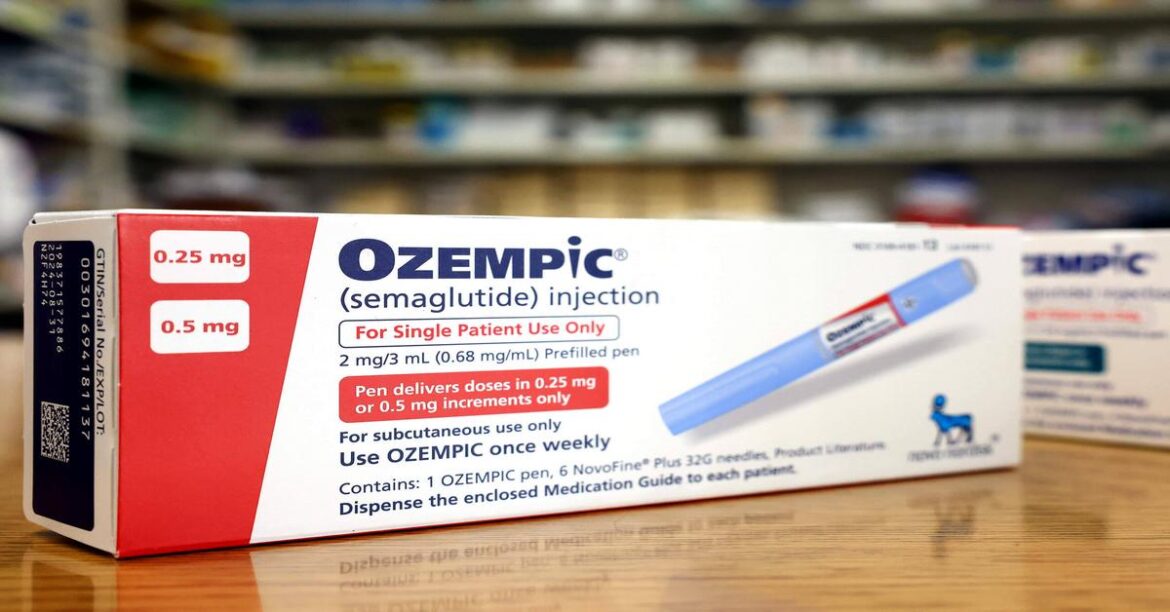Berberine Vs Ozempic: Is Berberine Really Nature’s Ozempic?
Have you ever found yourself searching for natural alternatives to manage your blood sugar or lose weight? You’re not alone. As more people turn to natural supplements, two names often come up: berberine and Ozempic. But how do they compare? In this blog, we’ll explore the benefits, effectiveness, and safety of both options to help you make an informed decision.
Background on Berberine
Berberine is a natural compound extracted from various plants, including goldenseal and barberry. It has been used for centuries in traditional medicine for its potential health benefits, particularly in managing blood sugar levels and gastrointestinal issues. Research indicates that berberine activates an enzyme called AMP-activated protein kinase (AMPK), which plays a crucial role in regulating glucose metabolism and improving insulin sensitivity (1).
Background on Ozempic
Ozempic, or semaglutide, is an FDA-approved medication primarily used for treating type 2 diabetes and aiding weight management. It mimics the action of glucagon-like peptide-1 (GLP-1), a hormone that increases insulin secretion, reduces glucagon release, and slows gastric emptying (2). Clinical studies have shown that Ozempic can lead to significant weight loss, averaging around 15% of body weight (3).
Comparative Effectiveness
When comparing the effectiveness of berberine and Ozempic, both have shown promise in managing blood sugar levels. However, Ozempic tends to be more effective due to its direct action on GLP-1 receptors. Berberine has been associated with modest weight loss, typically around 4-5 pounds, whereas Ozempic’s weight loss results are more substantial (4).
Side Effects Comparison
Both berberine and Ozempic have their share of side effects. Common side effects of berberine include diarrhea, abdominal pain, and constipation (5). On the other hand, Ozempic may cause more severe side effects, such as nausea and diarrhea, and in rare cases, pancreatitis (6).
Mechanisms of Action
Berberine works primarily by activating AMPK, enhancing insulin sensitivity without directly affecting appetite. In contrast, Ozempic operates by mimicking GLP-1, which regulates hunger and metabolism, leading to reduced food intake (7). This fundamental difference in their mechanisms highlights why Ozempic tends to have a more pronounced effect on weight loss.
Clinical Evidence and Research
While there are limited long-term studies on berberine, it is generally considered safe (8). In contrast, Ozempic has undergone extensive clinical trials that support its safety and efficacy for both diabetes management and weight loss (9).
Drug Interactions and Safety
Berberine can interact with various medications, including metformin and statins, which may complicate its use in individuals on diabetes medications (1). Ozempic, while effective, requires medical supervision to manage potential side effects and interactions (2).
Practical Considerations
For those considering berberine, a typical dosage ranges from 500 to 1500 mg per day (3). It’s crucial to combine berberine supplementation with a healthy diet and exercise for optimal results. In contrast, Ozempic requires adherence to a prescribed regimen, often alongside lifestyle modifications.
Conclusion
In summary, while berberine shows potential as a natural alternative for managing blood sugar and weight, it does not match the effectiveness of Ozempic, particularly in substantial weight loss. If you are considering either option, it’s essential to consult with a healthcare provider to determine the best approach for your individual health needs.
Have you tried berberine or Ozempic? What has your experience been? Share your thoughts in the comments below!
FAQ Section
Is berberine as effective as Ozempic for weight loss and blood sugar control?
No, Ozempic is more effective due to its direct action on GLP-1 receptors.
How does berberine compare to Ozempic in terms of side effects?
Berberine generally has milder side effects compared to Ozempic.
Can berberine be used as a substitute for Ozempic in managing type 2 diabetes?
Not recommended due to lack of FDA approval and lesser efficacy.
What are the differences in how berberine and Ozempic work in regulating hunger and metabolism?
Berberine acts via AMPK, while Ozempic mimics GLP-1.
Are there any long-term studies or clinical trials that prove the safety and efficacy of berberine?
Limited long-term studies exist for berberine.
Is berberine safe to take with other medications, especially those for diabetes?
Consult a healthcare provider due to potential interactions.
How much weight loss can be expected from taking berberine supplements?
Typically modest, around 4-5 pounds.
Does berberine interact with any prescription medications, and if so, how?
It interacts with medications like metformin and statins.
What are the potential benefits of using berberine alongside a healthy lifestyle and diet?
May enhance blood sugar control and modestly aid in weight loss.
Can berberine be used by everyone, including pregnant or breastfeeding women?
No, it is unsafe during pregnancy and breastfeeding.
References
[1]. Healthline. “Can Berberine Really Help You Lose Weight?” Published on March 1, 2023. Available at: https://www.healthline.com/health-news/natures-ozempic-can-berberine-really-help-you-lose-weight. Accessed on March 13, 2025.
[2]. WebMD. “Berberine Health Benefits.” Available at: https://www.webmd.com/obesity/berberine-health-benefits. Accessed on March 13, 2025.
[3]. Fay Nutrition. “Berberine Vs Ozempic: What’s Better for Weight Loss and Diabetes?” Available at: https://www.faynutrition.com/post/berberine-vs-ozempic-whats-better-for-weight-loss-and-diabetes. Accessed on March 13, 2025.
[4]. La Vanguardia. “The Danger of Berberine: Nature’s Ozempic.” Available at: https://www.lavanguardia.com/mediterranean/20250114/10281870/danger-berberine-natural-ozempic-revolutionizing-social-media-spain-nutrition-health-plant-dietary.html. Accessed on March 13, 2025.
[5]. Sharp. “Is Berberine Nature’s Ozempic?” Available at: https://www.sharp.com/health-news/is-berberine-natures-ozempic. Accessed on March 13, 2025.
[6]. MedPage Today. “Weight Loss Fad: Berberine—Nature’s Ozempic?” Available at: https://www.medpage.com/popmedicine/cultureclinic/104812. Accessed on March 13, 2025.
[7]. Evidation. “Berberine Vs Ozempic.” Available at: https://evidation.com/blog/berberine-vs-ozempic. Accessed on March 13, 2025.
[8]. Verywell Health. “Berberine: Nature’s Ozempic?” Available at: https://www.verywellhealth.com/berberine-nature-ozempic-11690232. Accessed on March 13, 2025.
[9]. Health. “Is Berberine Safe?” Available at: https://www.health.com/berberine-natures-ozempic-safety-7506050. Accessed on March 13, 2025.

